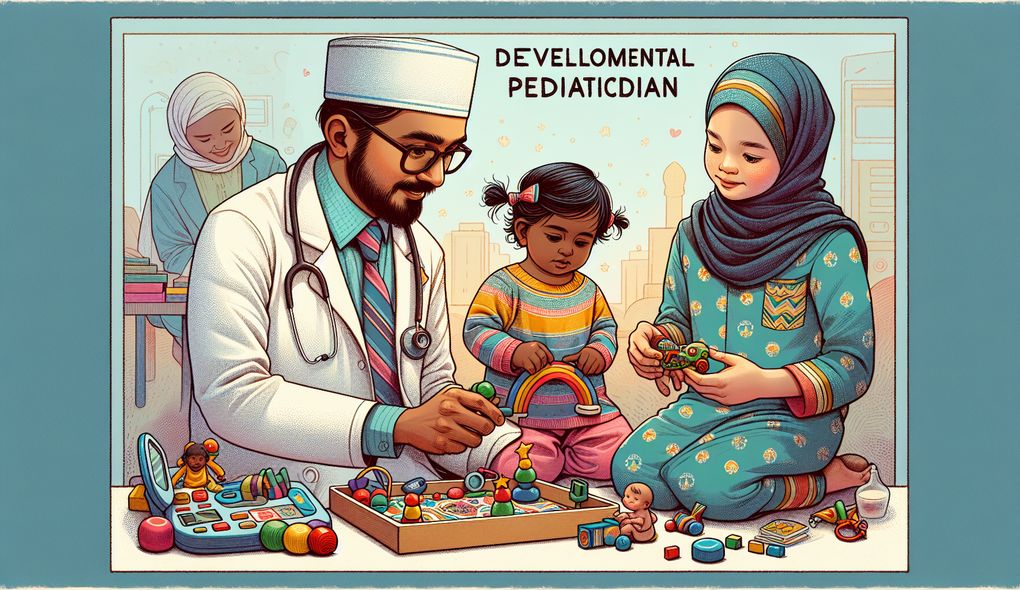What strategies do you use to effectively communicate with children?
JUNIOR LEVEL

Sample answer to the question:
To effectively communicate with children, I use simple and clear language that they can understand. I also maintain eye contact and use visual aids to enhance their comprehension. Additionally, I take a patient and empathetic approach, actively listening to their concerns and validating their emotions. Building a rapport with the child is crucial, so I engage in activities or games that they enjoy to make them feel comfortable. Furthermore, I involve their families in the communication process by providing updates and explaining the treatment plans in a clear and compassionate manner.
Here is a more solid answer:
To effectively communicate with children, I employ a range of strategies. Firstly, I use age-appropriate language and avoid complex medical jargon, ensuring that the child understands the information I provide. I also utilize visual aids such as diagrams or pictures to enhance their comprehension. Maintaining eye contact and actively listening to their concerns help to establish trust and build rapport. Furthermore, I validate their emotions and create a safe space for them to express themselves. I understand that collaboration is crucial, so I work closely with other professionals, such as therapists and educators, to develop comprehensive treatment plans. Additionally, I stay up-to-date with the latest research in pediatric developmental disorders to provide evidence-based care. Finally, I involve the child's family in the communication process, providing regular updates and explaining the treatment plans in a compassionate and understandable manner.
Why is this a more solid answer?
The solid answer expands on the basic answer by providing specific strategies, such as using visual aids and age-appropriate language. It also emphasizes the importance of collaboration with other professionals and staying updated with research. The answer is more comprehensive and covers all the evaluation areas. However, it could still be improved by including specific examples of successful communication with children and their families.
An example of a exceptional answer:
Effectively communicating with children requires a multifaceted approach. Firstly, I adapt my communication style to suit each child's developmental stage and individual needs. For instance, I might use games, play, or storytelling for younger children, while employing open-ended questions and active listening for older ones. Visual aids, such as social stories or picture schedules, can assist children with developmental or behavioral disorders. I also recognize the importance of non-verbal communication, utilizing body language, facial expressions, and gestures to convey empathy and understanding. To foster collaboration, I work closely with parents, educators, and therapists, ensuring that everyone is on the same page regarding the child's progress and treatment goals. Additionally, I educate families about developmental health and treatment options, empowering them to make informed decisions. Reflecting on my experiences and seeking feedback from parents and colleagues allows me to continually improve my communication skills. By attending conferences and participating in relevant workshops, I stay up-to-date with the latest research and best practices. Furthermore, I actively engage in team meetings and participate in case conferences to contribute to the development of comprehensive treatment plans.
Why is this an exceptional answer?
The exceptional answer excels by providing a detailed and well-rounded approach to effective communication with children. It showcases adaptability in communication styles, incorporates the use of visual aids for special needs children, and highlights the importance of non-verbal communication. The answer also emphasizes active collaboration with parents, educators, and therapists, and the continuous improvement of communication skills through reflection and feedback. Furthermore, it demonstrates a commitment to professional development by attending conferences and engaging in team meetings. Overall, the exceptional answer covers all evaluation areas and goes above and beyond in terms of depth and specificity.
How to prepare for this question:
- Familiarize yourself with child development stages and milestones to tailor your communication approach.
- Research and practice age-appropriate language and effective non-verbal communication.
- Learn about various visual aids and techniques to enhance comprehension for children with developmental or behavioral disorders.
- Brush up on active listening skills, such as paraphrasing and reflecting emotions.
- Be prepared to provide examples of successful communication with children and their families.
- Stay updated with the latest research in pediatric developmental disorders and attend relevant conferences or workshops.
- Consider seeking feedback from parents or colleagues to improve your communication skills.
- Reflect on and evaluate your past experiences and interactions with children to identify areas for growth.
What are interviewers evaluating with this question?
- Communication Skills
- Empathy
- Collaboration

